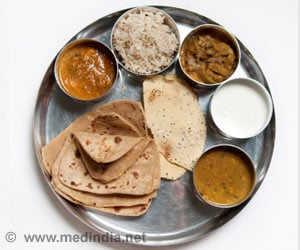In a first ever study conducted on the prevalence of diabetes in the Indian population, several important aspects of control and prevention of diabetes has been uncovered.
In a first ever study conducted on the prevalence of diabetes in the Indian population, several important aspects of control and prevention of diabetes has been uncovered. So far, such studies have only been conducted on Western population, the results of which cannot be applied to South Asians.
The research has been conducted by M V Hospital for Diabetes and Diabetes Research Centre, an association of the World Health Organization Collaborating Centre for Diabetes in India. Dr. A. Ramachandran, a senior scientist has conducted the study, the results of which can be found in Diabetologia, the International Journal of Diabetes.It has been found that more than 35 million Indians suffer from diabetes. Alarmingly, as much as 13 million cases (50% in rural India and 30% in urban India) remains undiagnosed, leading to long-term complications. Various factors such as widespread urbanization, reduced physical activity, the consequent obesity, stress and several other environmental factors have been accounted for the high incidence of diabetes in India.
Diabetes is next only to smoking, in causing cardiovascular disease in the Indian population. The prevalence of diabetes is greater amongst the urban South Asian population (12-15%) compared to urban population in the West (6%). Alarmingly, the incidence of diabetes in urban India has increased by a margin of 20 times over the past two decades.
Moreover, measures such as weight reduction; life style modification may not hold good for the Indian population, as Indians are diverse with respect to human body measurement and biochemical constitution. Indians develop diabetes at an early age compared to the Western population, probably because they are highly insulin resistant.
More than 11,00 high-risk individuals were continuously monitored during the study based on their lifestyle. The study participants were divided into four groups. The control group was free of medication or lifestyle modification while members of the lifestyle modification group walked for an average of half-an hour everyday and consumed a recommended diet. The third group was given an anti-diabetic medication (metformin) and the fourth group was recommended anti-diabetic medication, lifestyle and diet modification.
The incidence of diabetes was 55%, 39.3%, 40.5% and 39.5% amongst members of the group 1, 2, 3 and 4 respectively. The study results point to the fact that diet and lifestyle modification, could play an equally important role in the prevention and management of diabetes. This is however, to a large extent ignored by Indians.
Advertisement











